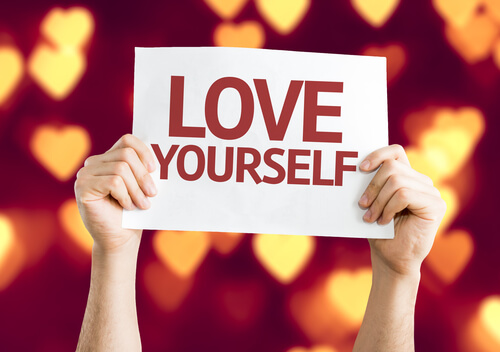Stop Loving in Order to Learn How to Be in Love

Throughout our lives we love and fall in love with many people — couples, friends, family — but do we know the difference between loving and being in love?
The philosopher, writer and entrepreneur Paul Hudson, wrote a column in the Daily Elite explaining the ten differences between being in love and loving a person. The word love involves some degree of ownership and attachment. While being in love is a freer feeling.
“I don’t want to tolerate you, I want to love and respect your essence”
-Walter Riso-

A healthy love
Walter Riso, Argentine psychologist, tells us that to have a healthy love you have to give three joint facets of love:
- Eros. Passionate love, sexual desire, infatuation. It is the selfish side of love, in which we want to possess the other person. It is an incomplete love, something is missing.
- Philia. It is the friendship of the couple. What is important is reciprocity, enjoying together, having fun, being confident. While Eros is diminished with time, Philia is reinforced and strengthened over the years.
- Agape. It is selfless love, the love that makes us feel when a person is wrong or when you feel cheerful.
Therefore, there is not only one kind of romantic love, but three kinds of love that must be given all together: Eros, Philia and Agape. Missing any of these aspects will result in an incomplete love, a love that does not make us happy because it lacks something.
Loving is a learning
During our life, we are taught to memorize and be productive professionals, but we are not taught something fundamental: to manage our emotions.
“Love is the absence of selfishness”
-Erich Fromm-
Borja Vilaseca, writer, lecturer and entrepreneur, says that everything starts with knowledge, then comes understanding and thus it is possible to accept in order to love.
Our worst enemies on our path of learning to love are:
- The ego. It is the excessive and inordinate love that a person feels about him or herself. The ego prevents learning because the person believes he or she knows everything. They feel superior and cannot love others. The ego can manifest in many forms: anger when we fail to get what we want, control over others, pride by believing we are on top and hatred, which prevents us from seeing the good in others.
- Self-deception. We deceive ourselves continuously, we tell ourselves that all is well when it is not. We believe what we tell ourselves without realizing that there may be a gap between what we think and reality.
- Cowardice. Cowardice limits us, preventing us from being who we are. We need to be courageous, to confront ourselves and move on with courage. We must dare to be ourselves.

- Lack of humility. Always recognizing our mistakes and learning from them is essential. Our humility in accepting our mistakes provides a way for us to love ourselves and others.
- Lack of perseverance. When they tell you you’re crazy or not to do something, listen to yourself, to what your heart tells you and what you feel. Do not be discouraged. Being persistent will allow you to achieve anything you set your mind to.
- Fear. Fear blinds us by preventing us from deciding and doing what we really want. In love we are afraid of getting hurt and being rejected, but love is always a risk and it is necessary to learn from each situation.
And remember, to love another person it’s necessary to begin to love ourselves, accept ourselves and not lie to ourselves. The relationship we have with others is a reflection of the one we have with ourselves.
Loving someone is not blaming, judging or criticizing them. Love is wisdom. It’s understanding ignorance and unconsciousness.
“When the eye is not blocked, the result is vision. When the mind is not blocked, the result is wisdom,
and when the spirit is not blocked, the result is love. “
-Chinese Proverb-
Throughout our lives we love and fall in love with many people — couples, friends, family — but do we know the difference between loving and being in love?
The philosopher, writer and entrepreneur Paul Hudson, wrote a column in the Daily Elite explaining the ten differences between being in love and loving a person. The word love involves some degree of ownership and attachment. While being in love is a freer feeling.
“I don’t want to tolerate you, I want to love and respect your essence”
-Walter Riso-

A healthy love
Walter Riso, Argentine psychologist, tells us that to have a healthy love you have to give three joint facets of love:
- Eros. Passionate love, sexual desire, infatuation. It is the selfish side of love, in which we want to possess the other person. It is an incomplete love, something is missing.
- Philia. It is the friendship of the couple. What is important is reciprocity, enjoying together, having fun, being confident. While Eros is diminished with time, Philia is reinforced and strengthened over the years.
- Agape. It is selfless love, the love that makes us feel when a person is wrong or when you feel cheerful.
Therefore, there is not only one kind of romantic love, but three kinds of love that must be given all together: Eros, Philia and Agape. Missing any of these aspects will result in an incomplete love, a love that does not make us happy because it lacks something.
Loving is a learning
During our life, we are taught to memorize and be productive professionals, but we are not taught something fundamental: to manage our emotions.
“Love is the absence of selfishness”
-Erich Fromm-
Borja Vilaseca, writer, lecturer and entrepreneur, says that everything starts with knowledge, then comes understanding and thus it is possible to accept in order to love.
Our worst enemies on our path of learning to love are:
- The ego. It is the excessive and inordinate love that a person feels about him or herself. The ego prevents learning because the person believes he or she knows everything. They feel superior and cannot love others. The ego can manifest in many forms: anger when we fail to get what we want, control over others, pride by believing we are on top and hatred, which prevents us from seeing the good in others.
- Self-deception. We deceive ourselves continuously, we tell ourselves that all is well when it is not. We believe what we tell ourselves without realizing that there may be a gap between what we think and reality.
- Cowardice. Cowardice limits us, preventing us from being who we are. We need to be courageous, to confront ourselves and move on with courage. We must dare to be ourselves.

- Lack of humility. Always recognizing our mistakes and learning from them is essential. Our humility in accepting our mistakes provides a way for us to love ourselves and others.
- Lack of perseverance. When they tell you you’re crazy or not to do something, listen to yourself, to what your heart tells you and what you feel. Do not be discouraged. Being persistent will allow you to achieve anything you set your mind to.
- Fear. Fear blinds us by preventing us from deciding and doing what we really want. In love we are afraid of getting hurt and being rejected, but love is always a risk and it is necessary to learn from each situation.
And remember, to love another person it’s necessary to begin to love ourselves, accept ourselves and not lie to ourselves. The relationship we have with others is a reflection of the one we have with ourselves.
Loving someone is not blaming, judging or criticizing them. Love is wisdom. It’s understanding ignorance and unconsciousness.
“When the eye is not blocked, the result is vision. When the mind is not blocked, the result is wisdom,
and when the spirit is not blocked, the result is love. “
-Chinese Proverb-
This text is provided for informational purposes only and does not replace consultation with a professional. If in doubt, consult your specialist.







